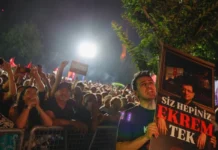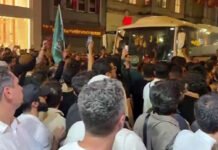Turkish government has banned the sale of three books written about Kurds and Kurdish issue on the grounds that they display “the character of a terrorist organization,” reported Gazete Duvar online news portal on Thursday.

Aytekin Gezici, an Adana-based Turkish journalist, was arrested on July 26, 2016 over his alleged links to the Gülen movement and he is still in Adana Kürkçüler E Type Prison.
It was reported that the investigation was launched by Chief Prosecutor’s Office of Kahta district of Adıyaman province on October 2 and decision to ban the books was given by Kahta’s Penal Court of Peace.
All three of the books have been on sale in Turkey for many years. “The Civil War of the Kurds” was published in 1994 by Belge Publishing House. “Kurdish History” was published in 2013 by the Tutku publishing house. And “Rojava: Time of the Kurds” was published in 2016 by İletisim Publications.

Meanwhile, pro-Kurdish Peoples’ Democratic Party (HDP) deputy Mithat Sancar has submitted a parliamentary inquiry about the three books banned by a local Penal Court of Peace and other banned books in Turkey on Thursday. Sancar has pointed to the Article No. 28 of the Constitution that states: “The press is free, it cannot be censored.”
Asking parliamentary questions to Prime Minister Binali Yıldırım on banned books Sancar has stated that “How can a book qualify as a terror organization? How many books are there currently whose distribution is banned in Turkey? Which books are these? Does banning the sales and distribution of the books comply with the Constitution and bylaws of international human rights? What sort of precautions do you plan to prevent such bans?
Turkey’s decades long conflict with the outlawed Kurdistan Workers’ Party (PKK) was reignited in July 2015. Since the failed coup of July 2016, Ankara has carried out a widespread crackdown on alleged coup plotters as well as including targeting opposition and Kurdish media and activists.















